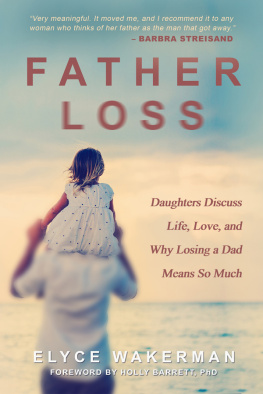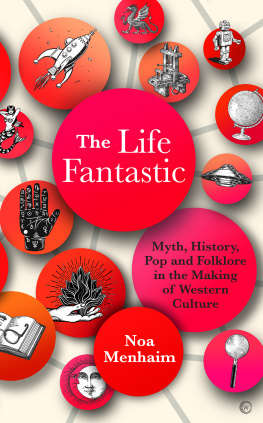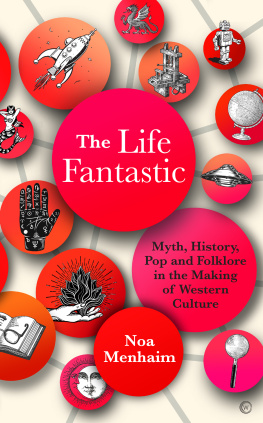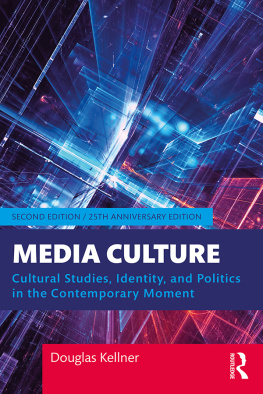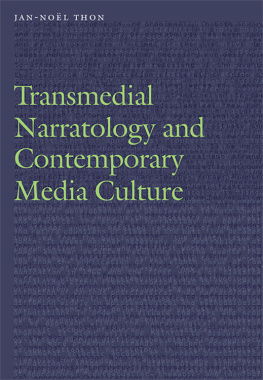The Woman Fantastic in Contemporary American Media Culture
THE WOMAN FANTASTIC
in Contemporary American Media Culture
Edited by Elyce Rae Helford, Shiloh Carroll,
Sarah Gray, and Michael R. Howard II
University Press of Mississippi / Jackson
www.upress.state.ms.us
The University Press of Mississippi is a member of the Association of American University Presses.
Copyright 2016 by University Press of Mississippi
All rights reserved
Manufactured in the United States of America
First printing 2016
Library of Congress Cataloging-in-Publication Data
Names: Helford, Elyce Rae, 1962 editor. | Carroll, Shiloh, 1980 editor. | Gray, Sarah, 1977 editor. | Howard, Michael R., 1972 editor.
Title: The woman fantastic in contemporary American media culture / edited by Elyce Rae Helford, Shiloh Carroll, Sarah Gray, and Michael R. Howard II.
Description: Jackson : University Press of Mississippi, 2016. | Includes bibliographical references and index.
Identifiers: LCCN 2016016556 (print) | LCCN 2016029277 (ebook) | ISBN 9781496808714 (hardback) | ISBN 9781496808721 (epub single) | ISBN 9781496808738 (epub institutional) | ISBN 9781496808745 (pdf single) | ISBN 9781496808752 (pdf institutional)
Subjects: LCSH: Women in mass media. | BISAC: SOCIAL SCIENCE / Womens Studies. | SOCIAL SCIENCE / Media Studies. | SOCIAL SCIENCE / Popular Culture.
Classification: LCC P94.5.W65 W615 2016 (print) | LCC P94.5.W65 (ebook) | DDC 302.23082dc23
LC record available at https://lccn.loc.gov/2016016556
British Library Cataloging-in-Publication Data available
Contents
Elyce Rae Helford, Shiloh Carroll, Sarah Gray, and Michael R. Howard II
J. Richard Stevens
Alex Naylor
Tosha Taylor
Ewan Kirkland
Nicola Mann
Rhonda Nicol
Elyce Rae Helford
Marleen S. Barr
Joan Ormrod
Katherine A. Wagner and Megan McDonough
Rhonda V. Wilcox
Acknowledgments
As with any project of this size and complexity, many individuals have helped and inspired us along the way.
First, we thank Katherine Kittredge of Ithaca College, whose 2011 Pippi to Ripley conference on science fiction and fantasy heroines inspired a 2012 follow-up conference at Middle Tennessee State University (MTSU), organized by (then) graduate students Shiloh Carroll, Sarah Gray, and Michael R. Howard II, titled Catwoman to Katniss and added female villains to the focus. We are grateful to all who presented at that conference and inspired the beginnings of this volume, long before Elyce became actively involved.
We thank MTSUs College of Liberal Arts and Dean Mark Byrnes, as well as the English Department and graduate director David Lavery, who offered his experience and advice. The university provided a supportive home as we undertook this adventure together.
At the University Press of Mississippi, we thank all who contributed to the production of the book. The anonymous external reviewers shared both praise and precise, detailed critiques that helped us make the work stronger in ways both large and small. Editorial assistant Lisa McMurtray patiently kept us on track and informed throughout the process. Copyeditor Michael Levine provided additional feedback and helped sharpen the writing. We also thank production manager Todd Lape and editorial associate Katie Keene. Above all, we offer our gratitude to acquiring editor Vijay Shah, who provided enthusiastic support throughout the process and kept our four-editor team productive and positive from start to finish.
Many thanks also go to all the authors in the volumefrom senior scholars to graduate studentswho shared their excellent work and made great use of feedback. We quite literally couldnt have done it without you.
Finally, although unconventionally, we editors wish to share our appreciation for one another. Shiloh, Sarah, and Michael (aka Mick) learned much about writing for publication from Elyces guidance. Elyce values the strong team the four editors made together, each working from her or his areas of strength while learning others. And she looks forward to watching the academic careers of the Trio blossom.
The Woman Fantastic in Contemporary American Media Culture
Introduction
Elyce Rae Helford, Shiloh Carroll, Sarah Gray, and Michael R. Howard II
Who or what is the Woman Fantastic, and what does it mean to engage critically with this figure in todays American media landscape? Just positing this question offers the beginnings of an answer. As the contrast between women and woman suggests, the Woman Fantastic is a gendered textual and cultural construction. Hence, she is entirely fantasticless projection, stereotype, or imago than symbol, sign, or trope, an always already artificial creation. Within the realm of the popular, she is a sales pitch, the offer of a model or mask through which the feminine and/or female can be reified. Woman always denies the emperor has no clothes, and in this way Woman is always fantastic.
From this perspective, our insistence as editors on the concept of the Woman Fantastic signals our focus on textual constructions that foreground artificialitythrough futuristic contexts, fantasy worlds, alternate histories, or the display of super powers that challenge the laws of physics, chemistry, and/or biology. We ask such questions as How does the figure of the Woman Fantastic signify within overtly impossible, improbable, or alien textual spaces? and How do feminist concepts such as agency, power, and heroism resonate through the Woman Fantastic in the fun-house mirror reflections and refractions of todays media?
Certainly, this is not the first book to engage this type of figure. Early fans, authors, and scholars of women in science fiction and fantasy (e.g., Joanna Russ, Beverly Friend, Susan Wood) concentrated on literary representations. They encouraged appreciation for literature beyond the developing feminist canon, illustrating the potential for nonrealist writing to provide a new perspective on cultural expressions of gender. Through small presses and fan gatherings, focus was placed on individual authors who had relative freedom to explore radical perspectives and challenges to social norms and the cultural status quo.
By contrast, our focus on contemporary American media culture shifts the context of both production and reception. Popular media texts are far less the products of individual minds. Auteur theory notwithstanding, television and mainstream comics are produced by teams within corporate structures, often with conflicting perspectives on the content, production, and goals of their final products. Radical innovation is antithetical to the business of the media and its investment in the top-down creation and control of popular culture. Even with more traditional forms, such as the novel, there can be severe formal constraints, as in paranormal romance or epic fantasy, where even relatively empowered/active female characters are relegated to traditional heteronormative endings and/or subjected to the dictates of the male gaze.
Of course, fans and critics may intervene in the interpretation and, occasionally, elements of production, and this should not be underestimated as one of the central pleasures of popular culture, as scholars from John Fiske and Henry Jenkins to Janice Radway have illustrated. This stated, the Woman Fantastic as we envision her for this collection is above all a figure of tension between feminist ambitions and economic and textual realities.



